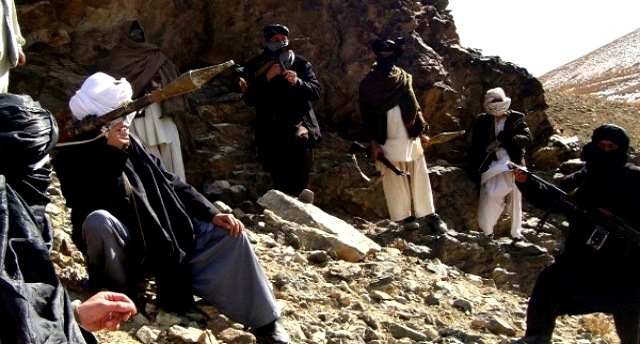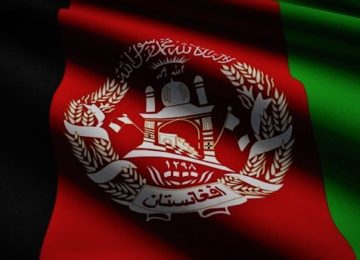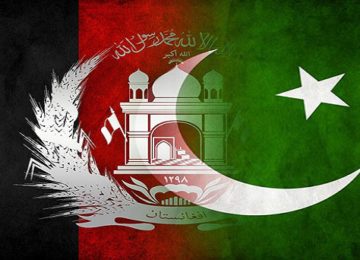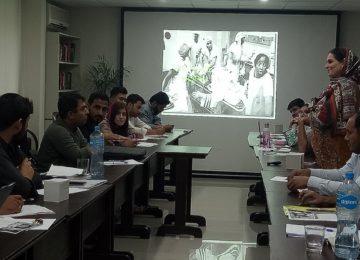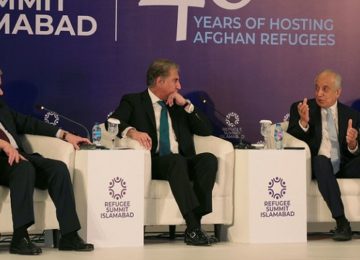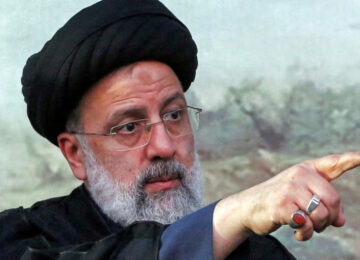The spokesman for the Afghan Taliban speaks to TRT World about the recent Kunduz air strike, Kabul’s talks offer and the emergence of Daesh in the region.
The deadly air strike in the Afghan province of Kunduz that reportedly killed dozens of seminary students has once again underlined the need to bring the 17-year-old conflict to an end.
In the recent past, the US, Turkey and several other countries have backed the option of talks between the US-backed Afghan government and the Taliban. In response, the Taliban has also indicated that it is open to negotiations.
TRT World spoke with Taliban spokesman Zabihullah Mujahid to understand where the leaders of the fighting force stand.
The Kabul government says it killed top Taliban commanders in the recent Kunduz air strike, but several reports suggest many civilians were also killed in the attack. How would you react to this?
Zabihullah Mujahid: Let an independent team carry out a fair and thorough investigation in order to find out who carried out this attack and why.
We will provide all opportunities possible for such a team and will guarantee their security.
The Kabul regime troops under the guidance of Americans bombed a gathering that had convened to celebrate the graduation of religious scholars and Quran memorisers inside a madrasa (religious seminary).
Up to 200 civilians were killed and wounded in this horrendous attack which has shocked the spiritual psyche of the Muslim Afghan nation.
This startling event again proves the deep hatred the occupying forces of Afghanistan and their irreligious internal stooges hold towards the creed, religious beliefs, education, values and sanctums of our nation, and their efforts of completely uprooting them.
Why did the Taliban refuse to send its representatives to the Tashkent conference? Uzbekistan seemed keen to host peace talks between Kabul and the Afghan Taliban. Will the Taliban accept this offer?
ZM: As long as the main party to the Afghan conflict – America – does not pursue genuine peace and believes in talks as a viable solution to the problem, ineffectual conferences will be of no benefit.
President Ashraf Ghani has offered recognition of the Taliban as a legitimate political group as part of a proposed peace process. He repeated the offer in Tashkent, saying it would “let ballots replace bullets.” Is the Taliban discussing his offer?
ZM: I do not wish to comment on this issue at the moment.
What are the Taliban’s conditions for peace talks with Kabul or the US?
ZM: The United States must end its occupation of Afghanistan and if the US has any fears about us Afghans, it should share its views with us through political dialogue.
Talks will not prove effective and are not reasonable as long as a policy of military presence and arrogant politics prevail. America and the Kabul regime still believe that the Taliban should surrender and reject any notion of freedom and independence of Afghanistan.
US Under Secretary of State for Political Affairs Thomas Shannon has warned if the Taliban rejects Ghani’s offer, the movement will be “opposed strongly.” Is the Taliban ready to face repercussions?
ZM: We have faced strong opposition since the Bush era.
It is not as if America did not exert complete force over the last 17 years. It didn’t shower Afghans with flowers either.
Rather, tens of US officials have come and gone; they have bluffed, exerted force, wagged fingers but returned empty-handed.
We recognise the abilities and capacity of the US officials. They cannot solve the issue at hand with idle talk and helter-skelter. They should adopt a policy of logic and talk about the fundamental issue instead of troubling Afghans, as well as exposing and further degrading American prestige.
The US has more troops in Afghanistan now, 14,000 from 11,000 earlier. The forces of the Kabul government are getting better equipment too. India is supplying them with gunship helicopters. Do you think the Taliban fighters will be able to fight future battles?
ZM: War has been imposed on us. No nation has been eradicated with force and weapons. We fought and exhausted 150,000 American and allied troops when America had the complete support of NATO and 49 nations.
We have gained a lot of experience and pushed our enemies to the brink of defeat. Their troops cannot halt the ongoing struggle and Jihad of our nation. The launch of sham peace efforts, propaganda and other plots only reveal their anxiety.
We have taught them exemplary lessons on the battlefields but, if forced, we will not only continue fighting for another decade but for a century, Allah willing.
The Taliban is also killing civilians. For example, the January 27 attack, in which a Taliban attacker drove an ambulance filled with explosives in Kabul, killed at least 103 people and wounded as many as 235. Doesn’t this make the Taliban a force against its own people?
ZM: The targets of our attacks and bombings are Americans and their internal mercenary forces. The reason why civilians sometimes suffer is because the enemy has based itself among the civilian population.
The greatest extent of the killed and wounded in the Kabul attack were the regime police and security personnel and reports about civilian casualties are propaganda. Civilians are our own people and we are sacrificing for the freedom of our own nation. The casualties inflicted upon our people are mostly due to the attacks of foreign invaders and their hirelings.
The head of the US forces in Afghanistan, General John Nicholson, says Russia is arming the Taliban from the northern areas. Is theTaliban taking help from Russia or Iran in its fight against the US forces and the Kabul government?
ZM: Such talk is propaganda. We have not taken any aid from foreign countries nor are we in need of it. The burden of our struggle is on the shoulders of our nation and we draw our support from them.
However, we do have political and ethical relations with some countries within legal limits as far as them recognising the Islamic Emirate [Taliban] as a legitimate regional force. And this is a reality.
The Trump administration has also come down hard on Pakistan, accusing Islamabad of helping the Taliban and Haqqani fighters. Pakistan faces sanctions. How would you react to this? How much influence does Pakistan have in your movement?
ZM: The United States blames Pakistan and other countries to justify their defeat and failure in Afghanistan. The real issue is that the Islamic Emirate physically controls over half of the country’s territory. It has deep national roots and its fighters are the youth. So, it is not in need of any outside aid or sanctuary.
Due to its own intricate regional policies, America sometimes places blame on Pakistan, sometimes on Iran, sometimes on Russia and at times even on China. All of this is linked to the malicious regional objectives of the US.
Afghanistan has also seen the rise of Daesh or the ‘Islamic State’ group. The US says there are some 1,000 members of Daesh in Afghanistan. Is Daesh a threat to the Taliban? How are you dealing with Daesh fighters?
ZM: The Islamic Emirate is standing firmly against Daesh and has managed to defeat most of their force. Daesh is currently at its weakest in Afghanistan. But the US and the Kabul regime have not done anything against Daesh and conversely, have carried out bombings against our fighters stationed against Daesh.
The truth of the matter is that Daesh is in conflict with the values of Islam and our nation and does not have any chance of gaining influence and success in Afghanistan.
Some reports say that Russia first established contacts with the Taliban leadership in 2007 to discuss the issue of drug trafficking. Now the Russians want the Taliban’s help to fight Daesh. Is the Taliban ready to collaborate with Russia or even China against Daesh?
ZM: Daesh is a threat and danger to our own nation and Islamic beliefs. We are combatting Daesh because they cause mischief and seek to sow seeds of religious hatred and discord among our people.
We possess complete ability of dealing with Daesh and do not need aid from anyone.
The Taliban has declared support for the $10 billion gas pipeline from Turkmenistan that will pass through Afghanistan to Pakistan and beyond. Do you support this project because of financial motives?
ZM: The gas pipeline development serves as a lifeline project for our nation. This project began during our rule and we support this project because it serves the interests of our nation.
We place Islamic and national interests above any financial incentives.
How many fighters do you have across Afghanistan? How do you finance your movement?
ZM: As for our manpower serving on the front lines in military formations, I cannot disclose precise information due to military confidentiality.
Our Mujahideen are very low-maintenance compared to the Kabul regime troops and most importantly, corruption and disorder are not prevalent in our ranks.
Our accounting is very transparent and free of misappropriation therefore we are able to do a lot with minor expenses.
Source: TRT World [April 10, 2018].
Disclaimer: Views expressed on this blog are not necessarily endorsed or supported by the Center for Research and Security Studies, Islamabad.



